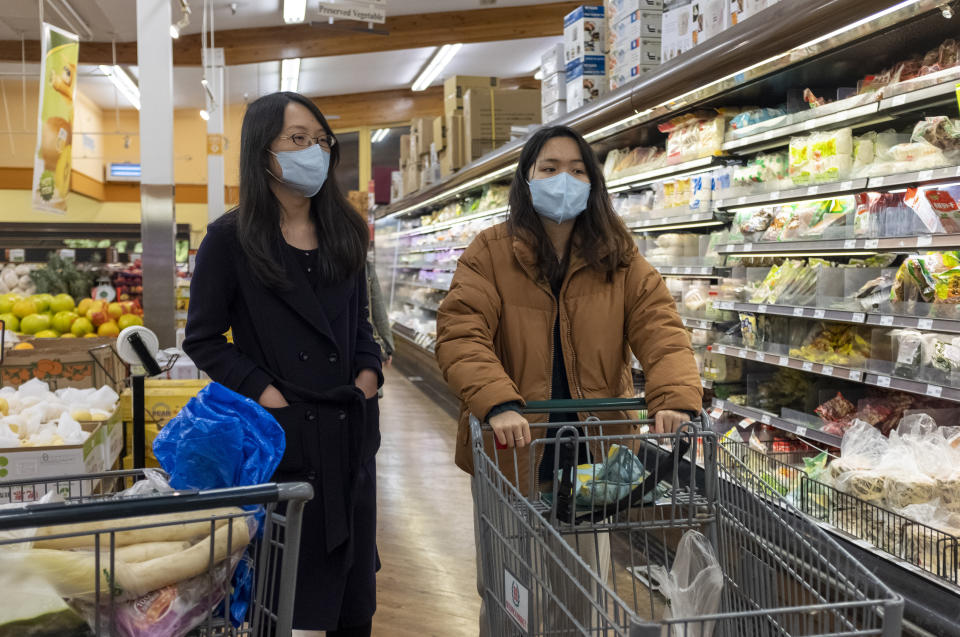What is a pandemic and will coronavirus become one? Experts weigh in
Confirmed cases of novel coronavirus have been steadily increasing on a daily basis, but the latest data shows a shocking new number: Worldwide cases of the virus jumped by nearly 3,000 in the last 24 hours. In the wake of the news, fears are spiking that the outbreak may become a pandemic — following in the footsteps of the 2009 flu pandemic, which is estimated to have killed between 100,000 and 400,000 people.
As of Monday, there are now nearly 17,500 confirmed cases of novel coronavirus worldwide, with 17,300 cases in China alone. The latest data comes from Johns Hopkins University, which has created an interactive map tracking the coronavirus epidemic using data from the Centers for Disease Control, the World Health Organization and the European Center for Disease Control and Prevention (among others).
Experts estimate that the mortality remains around two percent for the Wuhan coronavirus, with 362 deaths reported in China thus far. Outside of the country, there are at least 146 confirmed cases of the virus in 23 countries. In the U.S., there are now 11 confirmed cases of coronavirus.
While official numbers suggest there are less than 18,000 cases of the new virus in China, new research released in The Lancet on Monday estimates the real number is closer to 75,000 in the city of Wuhan, where coronavirus originated. This may be due to China drastically underestimating the size of the outbreak in the days and weeks after the virus began.
On Thursday, the WHO declared the outbreak of coronavirus a global health emergency, saying that the only way to defeat the outbreak is to “work together in a spirit of solidarity and cooperation.” In the meantime, as the virus continues to spread, many have started comparing coronavirus to the pandemic disease featured in the 2011 movie, Contagion. And, while coronavirus is clearly different from the fictional MEV-1, it’s raised some questions about pandemics—specifically, whether coronavirus is one.

What is a pandemic, exactly?
A pandemic — which stems from the Greek work pándēmos meaning “all people” — is defined as the “worldwide spread of a new disease,” according to the WHO. Unlike epidemics, pandemics span many countries across multiple continents and generally cause far more cases, as well as a higher rate of death. Major pandemics over history include the HIV epidemic, the Flu Pandemic of 1918 and the Black Death.
“A pandemic just means that there are many cases of infectious diseases in multiple parts of the world and that it constitutes something that’s above the baseline rate that you’d expect,” infectious disease expert Amesh A. Adalja, MD, senior scholar at the Johns Hopkins Center for Health Security, tells Yahoo Lifestyle. “It doesn’t say anything about severity.”
Baseline rate refers to the “amount of a particular disease that is usually present in a community” — in this case, the amount of coronavirus present in a community. Five previous coronaviruses were identified prior to the Wuhan strand, including Middle East Respiratory Syndrome (MERS) and Severe acute respiratory syndrome (SARS) — the latter of which nearly became a pandemic.
Is coronavirus a pandemic?
At the moment, experts say that coronavirus — which is mostly localized to China — is not considered a pandemic. “We aren't there yet with the novel coronavirus,” Richard Watkins, M.D., an infectious disease physician in Akron, Ohio, and an associate professor of internal medicine at Northeast Ohio Medical University, tells Yahoo Lifestyle. “If infection control practices are effective, then the probability of a pandemic for the novel coronavirus is low.”
Still, William Schaffner, MD, an infectious disease specialist and professor at the Vanderbilt University School of Medicine, says “it has potential.” He’s especially concerned about the virus taking hold in Africa, where infectious disease control practices aren’t as strong as they are in other areas of the world where the virus has spread. “My nagging concern is if there are cases that are introduced into Africa, then it can spread widely,” he says.
As of now, coronavirus cases have been relatively mild outside of China, but that could change if the virus does, in fact, become a pandemic. “If you have many many cases, some will occur in more fragile populations and that’s likely where the more serious infections and deaths are going to occur,” Schaffner says. While cases of coronavirus are rapidly increasing in China, experts don’t think we’ll see a similar situation in the U.S. “It doesn’t have a foothold here,” Watkins says.
What is the protocol if it is deemed a pandemic?
According to the CDC, one of the first steps after an outbreak becomes a pandemic is to employ what’s called a Pandemic Severity Assessment Framework (PSAF). Experts use this to understand both how the virus is being transmitted, as well as the severity of the illness, and to make recommendations for federal, state and local health officials on how to best contain the virus.
The WHO will also perform its own risk assessment, exploring the extent of the pandemic, the mechanisms by which the infection is spreading and what vaccinations could be used to stop the new virus. Once WHO has made an assessment, the organization will release an official protocol report with guidelines for all 196 UN participating countries. Past reports have included best containment strategies for health workers and guidelines for preserving “essential services” like power, water, sanitation and food supply.
In the U.S., the Department of Homeland Security spearheads guidelines for individual Americans. On its information page, the DHS offers a list of steps to take in the lead-up to a pandemic (store food and water, get copies of health records, have non-prescription drugs on hand) as well as during a pandemic (avoid close contact with sick people, practice good health habits and wash your hands often).
Read more from Yahoo Lifestyle:

